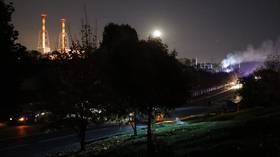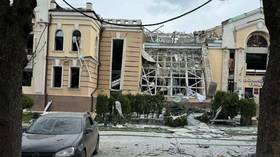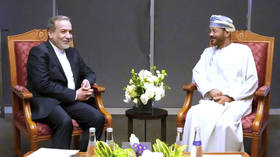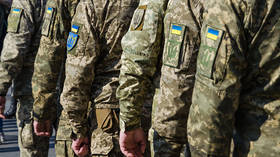Anti-China bloc tests AI-powered drone swarms
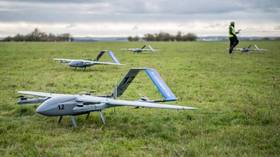
The US, UK and Australia have shown off new AI-powered drone swarms, marking the first-ever collaboration on autonomous UAV technology between the members of the AUKUS security pact, described by officials as a way to counter China.
The allies carried out the three-way “capabilities trial” late last month in Wiltshire, Britain, where they achieved the “live collaborative retraining of models in flight and the interchange of AI models between AUKUS nations” for the first time, according to the US military.
“The work saw the initial joint deployment of Australian, UK and US AI-enabled assets in a collaborative swarm to detect and track military targets in a representative environment in real time,” the Pentagon said in a statement on Friday.
Formed in 2021 as a way to deter China in the Indo-Pacific region, the AUKUS pact has repeatedly come under fire from Beijing. Under the “Pillar I” of the deal, the United States pledged to furnish nuclear submarine technology to Australia “at the earliest date possible.”
Hosted by the UK’s Defence Science and Technology Laboratory, the drone tests were conducted as part of “Pillar II” of the AUKUS partnership, which calls to “develop and provide joint advanced military capabilities” between the three allies in order to “promote security and stability in the Indo-Pacific region.”
The Chinese Foreign Ministry insists that the new military initiatives will only “motivate an arms race, damage the international nuclear nonproliferation regime and harm regional stability and peace,” urging the three members to stop “ignoring the concerns of the international community.”
While officials have not offered extensive details about the UAV trials, the British military said they involved “more than 70 military and civilian defense personnel and industry contractors,” who tested swarms of Blue Bear Ghost and Boeing/Insitu CT220 drones.
UK forces provided several tanks and armored vehicles for the demo, while private contractors supplied a number of self-propelled howitzers and Soviet-era BMP vehicles produced in the former Czechoslovakia. The gear was used to test the drones’ ability to track military targets on the battlefield.
“This trial demonstrates the military advantage of AUKUS advanced capabilities, as we work in coalition to identify, track and counter potential adversaries from a greater distance and with greater speed,” British Lt. Gen. Rob Magowan, a senior Defence Ministry official, said in a statement.
The Australian military stated that the tests “achieved several world firsts,” including the live retraining of the drone swarms in flight.
Russia also sees the West’s expansion of its military presence in Asia as a risk that could lead to prolonged conflict. “I cannot imagine the great Asian civilizations toeing the line the way the EU unfortunately did, and obediently delivering Washington’s agenda,” Russian Foreign Minister Sergey Lavrov said in March.







